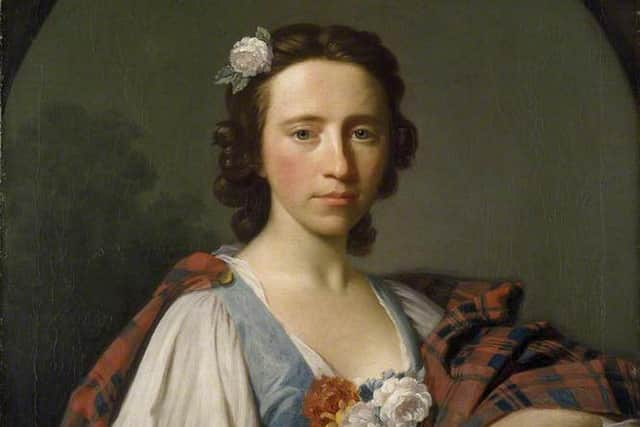300th anniversary of birth of Jacobite heroine Flora MacDonald celebrated in Outer Hebrides
Now the 300th anniversary of the birth of Flora MacDonald is to be celebrated on South Uist, where she was reportedly born in 1722.
Flora was 24 when she agreed to sail with the Prince from Benbecula to Skye in June 1746, with her assistance leading to her capture and imprisonment at the Tower of London.
Advertisement
Hide AdAdvertisement
Hide AdFollowing her release, the tacksman’s daughter emigrated to North Carolina with her new husband, who served with British forces during the American War of Independence.
Stòras Uibhist, a community-owned estate that also covers Eriskay and Benbecula, will lead the celebration of Flora’s “bravery and loyalty” during the anniversary year.
Mary Schmoller, chair of the organisation said: “The main theme throughout Flora’s life is one of loyalty at all costs.
"She was unwavering in her protection of Bonnie Prince Charlie and helped him escape to the Isle of Skye in difficult seas and an open boat. She lived an eventful life involving prison, marriage, children and emigration to North Carolina. They lost everything during the American War of Independence due to loyalty to the British government and soon returned to Scotland.


"Loyalty is a highly valued characteristic here on South Uist and is why Flora lives on through the generations. She was a remarkably brave and courageous woman and we are very proud to have her as part of our heritage.”
The Islands Galore Regatta will be held on Saturday, August 13 in Lochboisdale and will feature traditional music, local food and Hebridean dancing, with much of the celebration in Gaelic.
The Flora MacDonald Piping Committee will host a gathering in September and bring together young, local musicians with some of Scotland’s leading pipers.
Meanwhile, a new bronze plaque detailing Flora’s life story will be placed at the ruins of her former home at Milton in the south of the island. Some have questioned whether Flora was born here or on Benbecula, but she is known to have spent much of her life at the cottage.
Advertisement
Hide AdAdvertisement
Hide AdKildonan Museum and Bonnie Prince Charlie beach on Eriskay, where he landed in 1745 to begin his campaign, are also being highlighted.
Flora first met Bonnie Prince Charlie when he arrived at her brother's hut in South Uist along with his companion Captain O'Neill, who suggested she help with the Prince’s getaway.
"She thought it fantastical and dangerous, and at first positively refused to engage in it,” according to Browne’s 1852 History of the Highlands.
At the time, Uist was awash with militia hunting for the Prince, with warships surrounding the islands and no person allowed to leave without a passport.
But Flora agreed to the plan after seeing the Prince’s “critical and forlorn state” and arrangements for the sea crossing were made.
After a windy, overnight journey, they landed in the north of Skye. They dined at Kingsburgh House before making their way to the Portree Inn, where the pair went their separate ways and never saw each other again.
Community Land Scotland and Bord na Gaidhlig has supported the Stòras Uibhist anniversary events through a fund that encourages community groups to boost the use of Gaelic in their communities.
Comments
Want to join the conversation? Please or to comment on this article.
